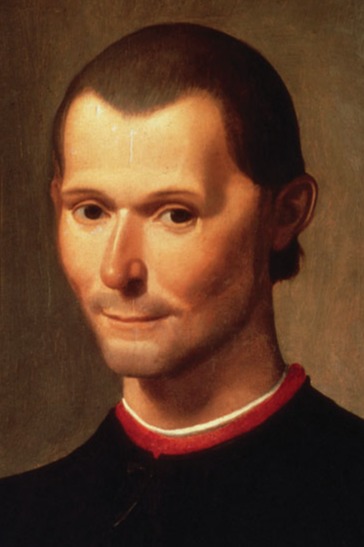
Personal info
Known for
Ultimate Talent
Gender
Male
Birthday
31 May
Location
Tuscany, Italy
Edit pageNiccolo Machiavelli
Biography
Niccolò Machiavelli was an Italian philosopher, writer, diplomat, and political theorist of the Renaissance period. Best known for his influential book “The Prince,” Machiavelli’s ideas on power, leadership, and statecraft have made him one of the most discussed and controversial figures in political history. His realistic approach to politics marked a shift from idealism to practicality, earning him the title of the father of modern political science.
Early Life and Education
Machiavelli was born on May 3, 1469, in Florence, Italy, into a middle-class family. His father, Bernardo Machiavelli, was a lawyer and a scholar who provided his son with a strong education in Latin, classical literature, and history. Growing up during the political turbulence of Renaissance Italy deeply influenced Machiavelli’s understanding of power and governance.
Career and Political Involvement
In 1498, after the fall of the ruling Medici family, Machiavelli entered public service as a diplomat and secretary in the Florentine Republic. During his 14 years in government, he traveled extensively on diplomatic missions to France, Germany, and other Italian states, meeting influential leaders and studying their methods of rule.
These experiences shaped his sharp observations of political behavior and human nature. Machiavelli witnessed firsthand the instability and corruption of Italian politics, which led him to develop a more pragmatic and sometimes ruthless understanding of leadership.
When the Medici family regained power in 1512, Machiavelli was dismissed, imprisoned, and briefly tortured under suspicion of conspiracy. After his release, he retired to his family estate near Florence, where he began writing the works that would make him famous.
Major Works and Ideas
Machiavelli’s most renowned work, “The Prince” (Il Principe), written in 1513, is a guide for rulers on how to gain and maintain political power. Unlike earlier political theorists who emphasized morality and virtue, Machiavelli argued that effective leadership often requires pragmatism, cunning, and even deceit.
He famously wrote that a ruler should be both “a lion and a fox” — strong enough to command respect and clever enough to outsmart enemies. His assertion that “the ends justify the means” (though simplified from his actual writings) captured his belief that political success sometimes demands morally ambiguous actions.
Other important works include “Discourses on Livy,” which explores republican government and civic virtue, and “The Art of War,” a treatise on military organization and strategy.
Later Life and Death
Though Machiavelli hoped to regain political favor, he never returned to public office. He continued to write on history, politics, and literature until his death. Niccolò Machiavelli died on June 21, 1527, in Florence, shortly after the Medici were again expelled from power.
Legacy
Machiavelli’s name has become synonymous with political manipulation and deceit — the term “Machiavellian” is often used to describe cunning or ruthless behavior. However, many modern scholars view him not as immoral but as a realist who understood politics as it truly is, rather than as it should be.
His ideas on power, leadership, and human behavior continue to influence politics, strategy, and even business and psychology today. Thinkers from Thomas Hobbes to Friedrich Nietzsche and John Locke have engaged with his theories.
Conclusion
Niccolò Machiavelli revolutionized political thought by replacing idealism with realism. Through his sharp insights into power and human nature, he revealed the complexities of leadership and governance that remain relevant in every era. Whether seen as a cynic or a realist, Machiavelli endures as a thinker who dared to tell the truth about power — as it is, not as we wish it to be.